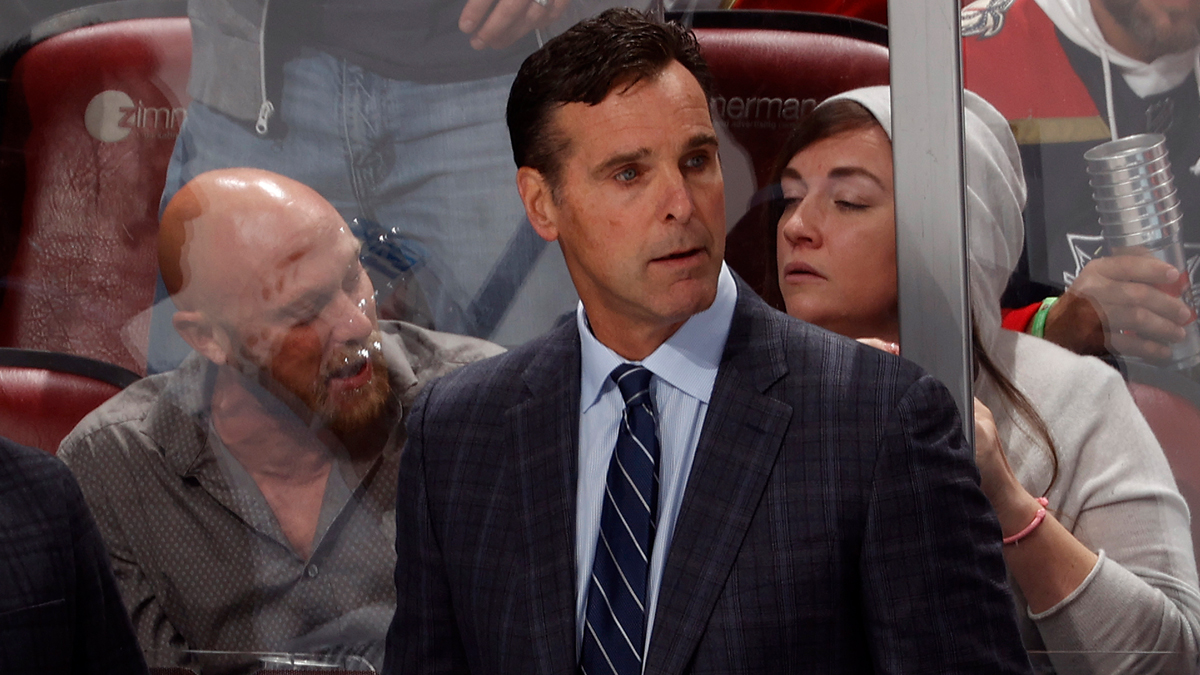Oakland's police chief is promising a vigorous investigation into a clash between police and Occupy Wall Street protesters that left an Iraq War veteran in critical condition with a fractured skull.
Police Chief Howard Jordan spoke Wednesday as tensions grew over demonstration encampments in key California cities.
Late Wednesday, hundreds of anti-Wall Street protesters Oakland filled a street with a late-night march.
"It's unfortunate it happened. I wish that it didn't happen. Our goal, obviously, isn't to cause injury to anyone," the chief said at an afternoon press conference.
Scott Olsen, 24, suffered a fractured skull Tuesday in a march with other protesters toward City Hall, said Dottie Guy, of the Iraq Veterans Against the War. The demonstrators had been making an attempt to re-establish a presence in the area of a disbanded protesters' camp when they were met by officers in riot gear.
It's not known exactly what type of object struck Olsen or who might have thrown it, though Guy's group said it was lodged by officers. Several small skirmishes had broken out in the night with police clearing the area by firing tear gas and protesters throwing rocks and bottles at them.
An Oakland hospital spokesman said Olsen, a network administrator in Daly City, was in critical condition Wednesday.
Local
Earlier Wednesday, officials allowed protesters back into the plaza outside City Hall where their 15-day-old encampment had been raided the day before, but said people would be prohibiting from spending the night. About 1,000 people quickly filled the plaza.
But another showdown between police and protesters appeared to be averted late Wednesday night as several hundred filed out of a plaza.
An AP photographer on the scene said police erected barricades to prevent the marchers from reaching a freeway, sending the group down side streets en masse.
Small contingents of officers could be seen following behind but there were no signs of any confrontations or arrests. The march tapered off after about an hour, with most of the protesters apparently dispersing.
By early Thursday, about 50 people were left at the site and few police could be seen.
"I'm going to stay here tonight," Jhalid Shakur, 43, of Oakland, said earlier in the day. "I don't have a tent, but I'll sleep on a bench if there's space."
"We're about to build our city back," he said.
Meanwhile, San Francisco officials warned protesters Wednesday that they could face arrest if they continue camping in a city plaza. In a letter, Police Chief Greg Suhr said the protesters could be arrested for violating a variety of city laws against camping, cooking, urinating and littering in public parks.
"Existing and ongoing violations make you subject to arrest," Suhr wrote in the notice, but didn't say if or when arrests would occur.
Police have taken down a previous Occupy San Francisco camp in the Justin Herman Plaza and also cleared another camp outside the Federal Reserve Bank downtown.
Late Wednesday some of the San Francisco protesters, estimated to be about 200 people, had their arms locked and were practicing trying to keep police from entering the perimeter of their encampment.
Police estimated at least five protesters were arrested and several others injured in the Tuesday evening clashes.
In Los Angeles, Los Angeles Mayor Antonio Villaraigosa said the Occupy LA encampment outside City Hall "cannot continue indefinitely."
Villaraigosa told the Los Angeles Times Wednesday that he respects the protesters right to peacefully assemble and express their views, but they must respect city laws and regulations.
He said he has asked city officials to draft restrictions limiting when people are allowed on city property.
Villaraigosa said county health inspectors have expressed concerns over the cleanliness of the camp. And, he says the demonstration is hurting the city's lawn and trees.
Oakland Mayor Jean Quan said the city supports the protesters' goals but had to act Tuesday when a small number of them threw rocks, paint and bottles at the police.
"We had, on one hand, demonstrators who tried to rush banks, other demonstrators saying don't do that, and we had police officers, for the most part, 99 percent, who took a lot of abuse," the mayor said. "So yesterday was a sad day for us."
Jordan said an internal review board and local prosecutors have been asked to determine if officers on the scene used excessive force. He asked witnesses with recordings of violent interactions between civilians and the officers who came from several Bay Area agencies to submit them to investigators.
The clash Tuesday evening came as officials complained about what they described as deteriorating safety, sanitation and health issues at the dismantled camp.
Oakland City Administrator Deana Santana said protesters would be allowed to assemble in the plaza outside City Hall from 6 a.m. to 10 p.m. She pleaded with those who planned to make another stand there to refrain from smashing windows, lighting fires and attempting to stay overnight.
"If we could have these simple, reasonable requests, we think we can assure safety in the streets tonight," Santana said.



